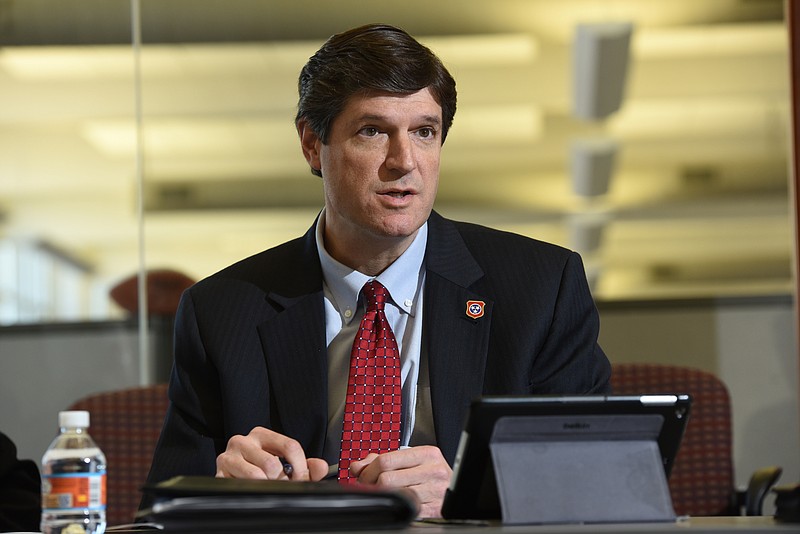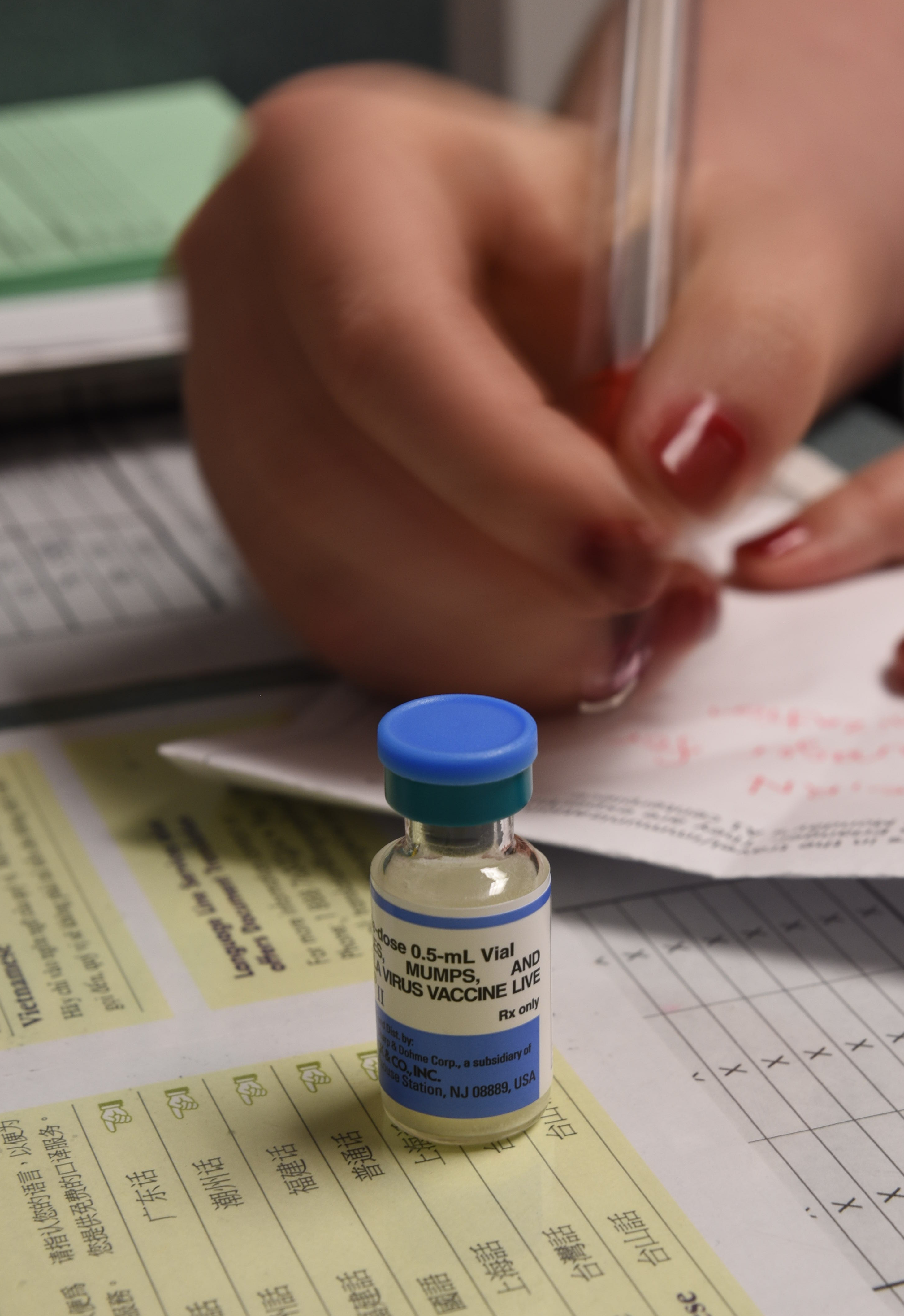Local, Tennessee and federal health officials are keeping a wary eye on Memphis, where six cases of measles have been reported since Friday.
"This outbreak will likely get worse before it gets better," Tennessee Department of Health Commissioner John Dreyzehner said in a statement Monday, "and we appreciate the cooperation of the hundreds impacted so far."
Measles is highly contagious and difficult to diagnose until the trademark rash appears. People infected with the virus can spread the disease for four days before the rash shows up, so health officials in Shelby County have been trying to figure out who those infected might have contacted in the days before they realized they were sick, according to Elizabeth Hart, public information officer for the local health department.
All six cases have now been confirmed by the U.S. Centers for Disease Control and Prevention, Hart said in an interview Tuesday. According to the CDC, only four other confirmed cases of the measles have been seen in the U.S. thus far in 2016, and there have been only nine cases in all of Tennessee since 2004.
The identities of the six measles patients in Memphis are being kept private, but Hart said they range in age and sex and in the part of the county where they live. She said some of them do appear to be connected. All appear to be getting better, Hart said, but she would not disclose whether any of them had been hospitalized.
Dr. Manisha Patel, an epidemiologist with the CDC, confirmed that her agency has been working with Memphis and state officials to verify the measles cases. Now the challenge is to track down anyone else they might have infected, she said.
"You want to look backward to see where they might have gotten infected, and then look forward to see who they might be infecting," Dr. Patel said.
Measles was once a feared childhood disease, but after the introduction of the mumps-measles-and-rubella (MMR) vaccine in the late 1960s, it was almost eradicated in the U.S, according to Dr. Judy Anderson, a pediatrician with CHI Memorial Hospital.
About one in every four measles patients needs hospitalization, and the disease is fatal for about one in 1,000 cases, she said.
The symptoms are typical for other childhood illnesses, making measles hard to detect in its early stages, Dr. Anderson said. Measles may start with a sore throat, cough and a runny nose, then a fever, and finally the rash of small red dots that first shows up on the head and then moves down to the trunk and then out to the arms and legs. In serious cases, complications can include influenza, brain damage, deafness, and encephalitis, Dr. Anderson said.
Measles is also a threat to pregnant women and those whose immune systems are weakened.
Dr. Anderson emphasized how easy it is to spread measles.
"It's a contagious, contagious disease," she said. "If somebody has measles and they leave a room, it is possible to be infected if you walk into that room two hours later."
There is no treatment for measles, which is why vaccinations are so important, the CDC's Dr. Patel said. The MMR vaccine is 93 percent effective with one shot and up to 97 percent effective when a booster shot is added, she said. While measles has been almost eradicated in the U.S., it still affects millions worldwide and therefore keeps getting re-introduced in the U.S. when unvaccinated travelers are infected and return home.
The Shelby County Health Department has set up a measles hotline to answer questions about the disease, which is staffed with healthcare professionals from 8 a.m. until 4:30 p.m., at 901-222-9299.
Contact reporter Steve Johnson at sjohnson@timesfreepress.com, 423-757-6673, on Twitter @stevejohnsonTFP, and on Facebook, www.facebook.com/noogahealth.

